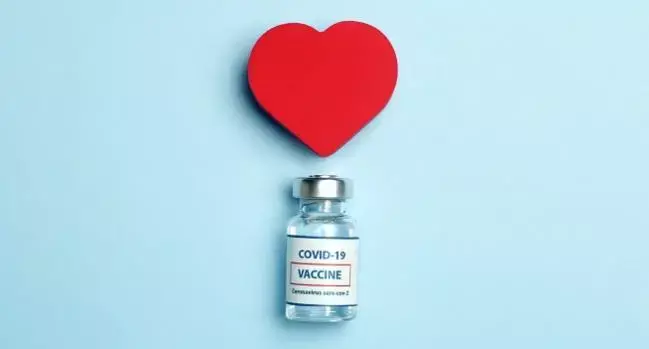- Home
- Medical news & Guidelines
- Anesthesiology
- Cardiology and CTVS
- Critical Care
- Dentistry
- Dermatology
- Diabetes and Endocrinology
- ENT
- Gastroenterology
- Medicine
- Nephrology
- Neurology
- Obstretics-Gynaecology
- Oncology
- Ophthalmology
- Orthopaedics
- Pediatrics-Neonatology
- Psychiatry
- Pulmonology
- Radiology
- Surgery
- Urology
- Laboratory Medicine
- Diet
- Nursing
- Paramedical
- Physiotherapy
- Health news
- Fact Check
- Bone Health Fact Check
- Brain Health Fact Check
- Cancer Related Fact Check
- Child Care Fact Check
- Dental and oral health fact check
- Diabetes and metabolic health fact check
- Diet and Nutrition Fact Check
- Eye and ENT Care Fact Check
- Fitness fact check
- Gut health fact check
- Heart health fact check
- Kidney health fact check
- Medical education fact check
- Men's health fact check
- Respiratory fact check
- Skin and hair care fact check
- Vaccine and Immunization fact check
- Women's health fact check
- AYUSH
- State News
- Andaman and Nicobar Islands
- Andhra Pradesh
- Arunachal Pradesh
- Assam
- Bihar
- Chandigarh
- Chattisgarh
- Dadra and Nagar Haveli
- Daman and Diu
- Delhi
- Goa
- Gujarat
- Haryana
- Himachal Pradesh
- Jammu & Kashmir
- Jharkhand
- Karnataka
- Kerala
- Ladakh
- Lakshadweep
- Madhya Pradesh
- Maharashtra
- Manipur
- Meghalaya
- Mizoram
- Nagaland
- Odisha
- Puducherry
- Punjab
- Rajasthan
- Sikkim
- Tamil Nadu
- Telangana
- Tripura
- Uttar Pradesh
- Uttrakhand
- West Bengal
- Medical Education
- Industry
Myopericarditis risk after COVID-19 Vaccine much lower compared to other vaccines

Globally, more than 10 billion doses of COVID-19 vaccines have been administered as of March 2022. The side effects of vaccination are usually mild and self-limiting. However, myopericarditis is increasingly being reported after the COVID-19 vaccination. A recent study suggests that the overall risk of myopericarditis after receiving a COVID Vaccine is less when compared with other non-COVID vaccines.
The study findings were published in The LANCET Respiratory Medicine on April 11, 2022.
Myopericarditis is a rare complication of vaccination against viruses and has previously been linked only to smallpox vaccination. A study in Israel, however, suggested that mRNA COVID-19 vaccines significantly increase this, particularly in males and in people at risk of myocarditis aged 16–39 years. To further explore, Dr Ryan Ruiyang Ling and his team conducted a study to characterise the incidence of myopericarditis following the COVID-19 vaccination and compare this with the non-COVID-19 vaccination.
In a systematic review and meta-analysis, the researchers searched four international databases from Jan 1, 1947, to Dec 31, 2021, for studies in English reporting on the incidence of myopericarditis following vaccination. They further conducted a random-effects meta-analysis (DerSimonian and Laird) and assessed the intra-study risk of bias (Joanna Briggs Institute checklist) and certainty of evidence (Grading of Recommendations, Assessment, Development and Evaluations approach). They analysed the difference in the incidence of myopericarditis among subpopulations, stratifying by the type of vaccine (COVID-19 vs non-COVID-19) and age group (adult vs paediatric). Among COVID-19 vaccinations, they examined the effect of the type of vaccine (mRNA or non-mRNA), sex, age, and dose on the incidence of myopericarditis.
Key findings of the study:
- The researchers included 22 studies, in which they observed 33·3 cases of myopericarditis (95% CI 15·3–72·6) per million vaccine doses.
- They noted that the incidence of myopericarditis did not differ significantly between people who received COVID-19 vaccines (18·2, 11 studies [395 361 933 doses], high certainty) and those who received non-COVID-19 vaccines (56·0, 11 studies [9 910 788 doses], moderate certainty).
- They found that compared with the COVID-19 vaccination, the incidence of myopericarditis was significantly higher following smallpox vaccinations (132·1) but was not significantly different after influenza vaccinations (1·3) or in studies reporting on various other non-smallpox vaccinations (57·0).
- Among people who received COVID-19 vaccines they noted that the incidence of myopericarditis was significantly higher in males (vs females), in people younger than 30 years (vs 30 years or older), after receiving an mRNA vaccine (vs non-mRNA vaccine), and after the second dose of vaccine (vs a first or third dose).
The authors concluded, "Among people who received COVID-19 vaccines, the incidence of myopericarditis was significantly higher in males (vs females), in people younger than 30 years (vs 30 years or older), after receiving an mRNA vaccine (vs non-mRNA vaccine), and after the second dose of vaccine (vs a first or third dose)."
In an accompanying, Dr Margaret Ryan and her colleague wrote, "Like Ling and colleagues, all professionals who have described myopericarditis following COVID-19 vaccination have emphasised that the benefits of vaccination far outweigh the risks during the current pandemic. Nonetheless, scientific knowledge and public health strategies must continue to evolve. "
For further information:
DOI: https://doi.org/10.1016/S2213-2600(22)00059-5
Medical Dialogues Bureau consists of a team of passionate medical/scientific writers, led by doctors and healthcare researchers. Our team efforts to bring you updated and timely news about the important happenings of the medical and healthcare sector. Our editorial team can be reached at editorial@medicaldialogues.in.
Dr Kamal Kant Kohli-MBBS, DTCD- a chest specialist with more than 30 years of practice and a flair for writing clinical articles, Dr Kamal Kant Kohli joined Medical Dialogues as a Chief Editor of Medical News. Besides writing articles, as an editor, he proofreads and verifies all the medical content published on Medical Dialogues including those coming from journals, studies,medical conferences,guidelines etc. Email: drkohli@medicaldialogues.in. Contact no. 011-43720751


